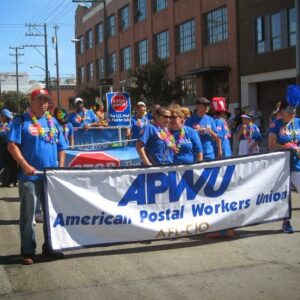July 20, 2005
APWU Wins Landmark FMLA Ruling
A federal appeals court has ruled that the Postal Service’s return-to-work requirements for absences of more than 21 days are in conflict with the Family and Medical Leave Act.
The unanimous ruling by the U.S. Court of Appeals for the Seventh Circuit invalidates key USPS regulations that require employees returning from approved FMLA leave of more than three weeks to submit detailed medical documentation — including diagnosis, prognosis, treatment and medication — and/or to submit to a medical examination by a physician selected by the Postal Service before it will allow them to return to work.
“We have fought long and hard to protect our members’ rights under the Family and Medical Leave Act,” said APWU President William Burrus. “This is a very sweet victory.”
The court ruled that the Family and Medical Leave Act requires employers covered by the law to return employees to work after their approved FMLA leave upon a basic showing that they are able to perform their duties. This is done by presenting a statement to that effect from the employee’s own physician, the court concluded.
“The provisions of the FMLA simply require an employer to rely on the evaluation of the employee’s own health-care provider,” the court said. “[T]he return-to-work certification need not contain specific information regarding diagnosis, prognosis, treatment and medication.”
The court also ruled that the Postal Service cannot enforce regulations that impose greater burdens on employees when they return to work than provided under the FMLA. The USPS provisions “impose a greater burden on the employee and therefore cannot be employed.”
“The FMLA and its regulations simply prevent an employer, including the Postal Service, from denying a return to work by an employee who has been absent on FMLA leave and who presents, upon his return, the requisite certification from his physician.”
APWU Industrial Relations Director Greg Bell hailed the decision. “This ruling will enhance the rights of all workers covered by the Family and Medical Leave Act,” he said, noting that the ruling applies to all employers, not just the Postal Service.
The court ruling was based on the case of Rodney Harrell, a Decatur (IL) Local APWU member. After selecting Harrell’s case to pursue in court, the union paid the expenses associated with the litigation, with its law firm representing the complainant.
The unusual arrangements were made in late 2002 when Burrus invited APWU members whose FMLA rights had been violated to file suit – at the national union’s expense.
The July 19, 2005, decision by the appeals court overturns a ruling by the U.S. District Court for the Central District of Illinois on Nov. 10, 2003; there are no contrary or competing decisions in the other circuits.
The appeals court ruling notes that the USPS can require fitness-for-duty exams of employees after they return from FMLA-approved leave, provided such exams are “job-related and consistent with business necessity in accordance with the Americans with Disabilities Act.”
For more information about the decision, see the next issue of The American Postal Worker, or visit the Industrial Relations pages at http://www.apwu.org/departments-divisions/industrial-relations.


